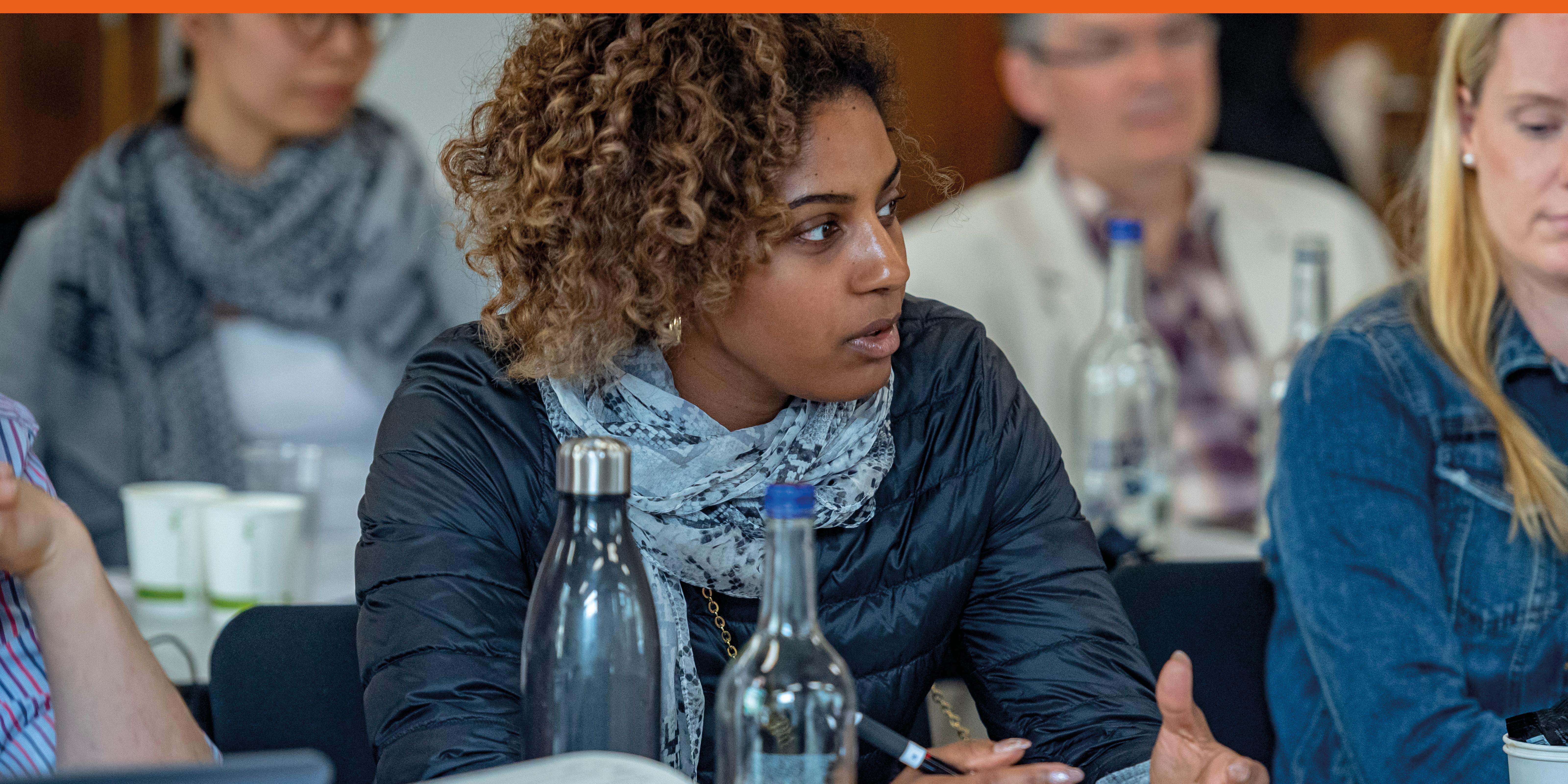
Published on 21 February 2020
The Construction Engineering Masters (CEM) programme was established in 2011 to educate future leaders and innovators in the architecture, engineering and construction industry and provide a source of talent to drive transformation of the industry. The degree is run by the Laing O’Rourke Centre for Construction Engineering and Technology at the University of Cambridge, with support from the Cambridge Judge Business School. The Centre was established with industry partner Laing O'Rourke to fulfil a shared vision of transforming the construction industry through innovation, education and technology.
The CEM programme, which aims to empower agents of change to meet the future challenges of society, is designed for experienced professionals – candidates with at least five years’ professional experience who have been identified by their organisations as emerging leaders. To date 99 students have graduated from the CEM and benefitted from the breadth and rigour of the multidisciplinary programme. Applications for the two-year, part-time course have increased in number, but organisers are calling for more women to enrol.
Dr Kristen MacAskill, Construction Engineering Masters Course Director and Fellow and Director of Studies in Engineering, St Edmund’s College, said: “It is an exciting time to work in infrastructure development. The sector is experiencing significant change through application of new technologies and modern methods. However, for the sector to truly transform we need change and diversity at leadership level. We would like to see more women apply to this year’s programme, and hope that applicants with a broad range of backgrounds in the sector also consider this programme as a development pathway.”
The potential benefits of diversity in leadership and workforce are well documented. Considering the business case for diversity and inclusion, The Royal Academy of Engineering Diversity Leadership Group’s 2015 report, ‘Diversity and Inclusion in Engineering’ stated: “one of the top three business imperatives driving diversity and inclusion work for engineering organisations (cited by 83% of organisations) was ‘enhancing capacity for innovation and creativity’”.
However, while companies are increasingly regarding inclusion and diversity as a source of competitive advantage, the McKinsey report Women in the Workplace (2019) states: “…women continue to be underrepresented at every level. To change the numbers, companies need to focus where the real problem is. We often talk about the ‘glass ceiling’ that prevents women from reaching senior leadership positions. In reality, the biggest obstacle that women face is much earlier in the pipeline, at the first step up to manager. Fixing this ‘broken rung’ is the key to achieving parity”.
MARIA SECO, Engineering Maintenance Manager at Elizabeth Line TfL and current CEM student, says: “This course is flexible enough to allow me to enjoy the studies while not neglecting other responsibilities. As a full-time working mum, who had her second child during the programme, it was refreshing to see how naturally all my challenges were never viewed as a problem for this fantastic team of academics. The content of the programme and the way it is conducted makes you feel that you can achieve great things professionally, regardless of your circumstances or background. An incredibly empowering experience.”
KATE HALL, former Design Director of HS2 Ltd and CEM graduate 2019, said: “I believe this course is not only unique but vital for our industry. Just when you think you know how the industry works and what is best, this course gets you to question, explore, research and learn about innovative, step-change solutions and opportunities. I would 100 per cent recommend this course to others in the industry. Through this course we will begin to transform the industry.”
Last year there was a drop in what had appeared to be an increasing trend in applications from high-potential female candidates. Dr MacAskill is calling for construction and infrastructure organisations to support diversity in the future leaders of their organisations. “Since I have been involved in the course women have consistently featured amongst the highest performers, yet they are underrepresented in numbers. We appreciate this is one factor of diversity, but it has been a strong signal to us that significant change is still needed. This course is challenging but don’t assume that it is not for you. I hope more women will realise their skills and talent, and consider this course as a stepping stone in their journey to pursue leadership and to advance the industry. The experience gained from the CEM programme really is unique – there is no other course like it.”
Applications for 2020 entry will be accepted until 30 April 2020.
- For more information on the course, please visit: www.construction.cam.ac.uk/education/cem.
- If you have any queries, please contact Cara Parrett, Communications Manager, at comms@construction.cam.ac.uk or telephone (0)1223 762457.
- Twitter: @CEMCambridge
- LinkedIn: Construction Engineering Masters
The text in this work is licensed under a Creative Commons Attribution 4.0 International License.
